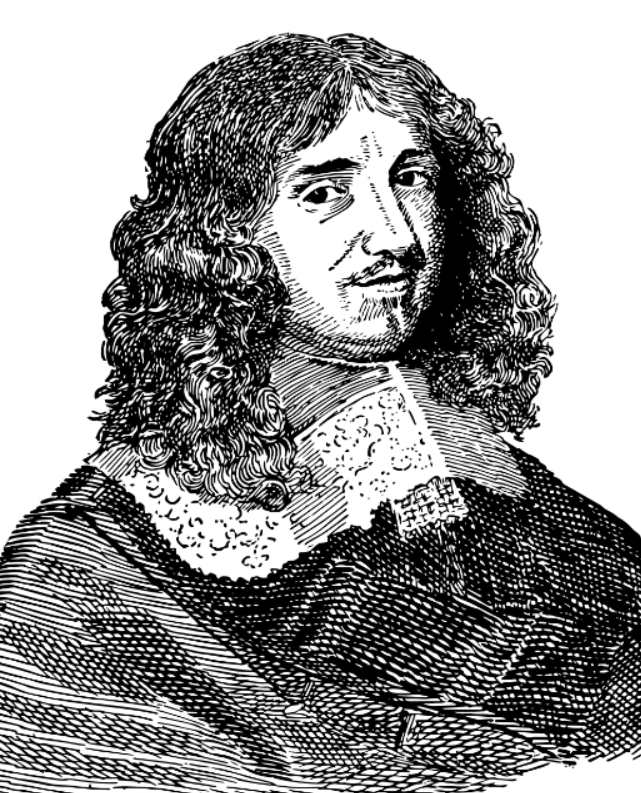- UNITS
- Unit 6 - Jean-Baptiste Colbert
- The Game of Words
- Prof. Quinn and Paul's Conversation
- Eloquence
- Latin Phrases
- Language Knots
- Test Corner
- LEARNING

♦ This introductory exercise aims to give you a feel for the sound and rhythm of the language, whilst presenting an overview of the maritime topic at hand. ♦ By reading and then listening to the accompanying audio, you’ll discover how words are pronounced and some simple sentence structures. ♦ Once you are comfortable with how the written and spoken words are connected, you’ll be ready to focus on keywords in the next exercise.
Jean-Baptiste Colbert
In Grotius’s time, the Netherlands were challenging the Spanish and Portuguese dominance of trade on the oceans. By the mid-seventeenth century, the Dutch were the most powerful and richest naval power in the world.
Jean-Baptiste Colbert was a French government official in this era, and his King, Louis XIV, wanted to expand his power and territory. Louis also was looking to capture the territories north of France, including the Spanish Netherlands (today’s Belgium), and then possibly the Dutch Republic itself. To achieve this, Louis needed to break up the Triple Alliance of the Dutch Republic, Sweden, and Great Britain. Louis signed a secret alliance treaty with the British in 1670, and also made Sweden an ally two years later. In both cases the French offered to pay their new allies a large subsidy. These subsidies and the consequent war with the Dutch all required large sums of money from the French treasury. That’s where Jean-Baptiste Colbert comes in to the story.
Colbert was born into a merchant family in 1619. Aged 30, he became a political official in the French government, where he gained the favour of King Louis XIV, and from 1664 onwards he began to acquire important offices of state. He became the minister in charge of public infrastructure, finances, the navy, commerce, the colonies, and the royal palace. By the peak of Colbert’s career, he controlled every part of the French state apart from the war ministry.
Colbert was a pure mercantilist, that is, he believed that the purpose of the French economy was to best support the French state. He intervened in the economy to advance the government’s strategic interests and, crucially, to increase state tax revenues. That also meant stronger international trade, a larger economy, and more employment would all contribute to a more powerful French state, and more glory for his ultimate master, King Louis XIV.
Colbert managed production of two legal ordinances which were essential for French economic and maritime growth. In 1673 the French ordinance of commerce was published, and in 1681, the Ordonnance de la Marine was released. Colbert led both these projects. The 711 articles of the marine ordinance formed the most comprehensive and complete body of maritime law ever produced. It includes laws regarding navigation, insurance, good transport, and all other relevant subjects. The ordinance was based on the historic and ancient marine legal codes discussed in the preceding units, selecting the best of each work. The ordinance was the direct work of a now-unknown team of French merchants, scholars, and sailors. The French ordinance is now seen as the true basis of modern European, and so global, maritime law.
The ordinances and Colbert’s other economic and naval reforms led the French from an economic low-point to become the dominant sea power for almost the next 100 years. Helped by a clear legal system, French sailors and merchants extended their trading networks across the world and the French Empire expanded to include much of North America. After Colbert’s death in 1683, the admiralty received less funding, and economic interests steadily became separated from the state interests. As a consequence, the global influence of the French state gradually lessened.
